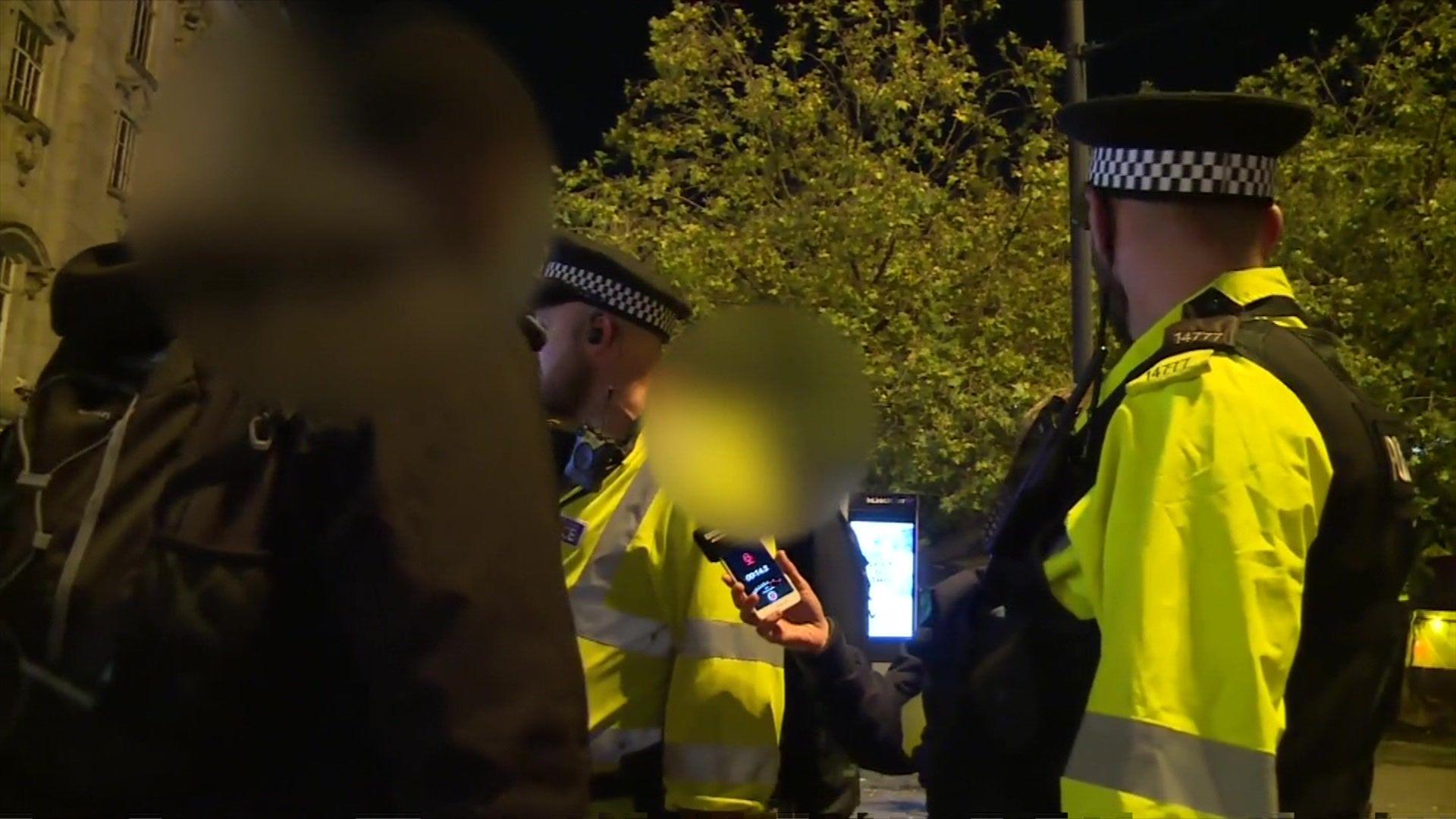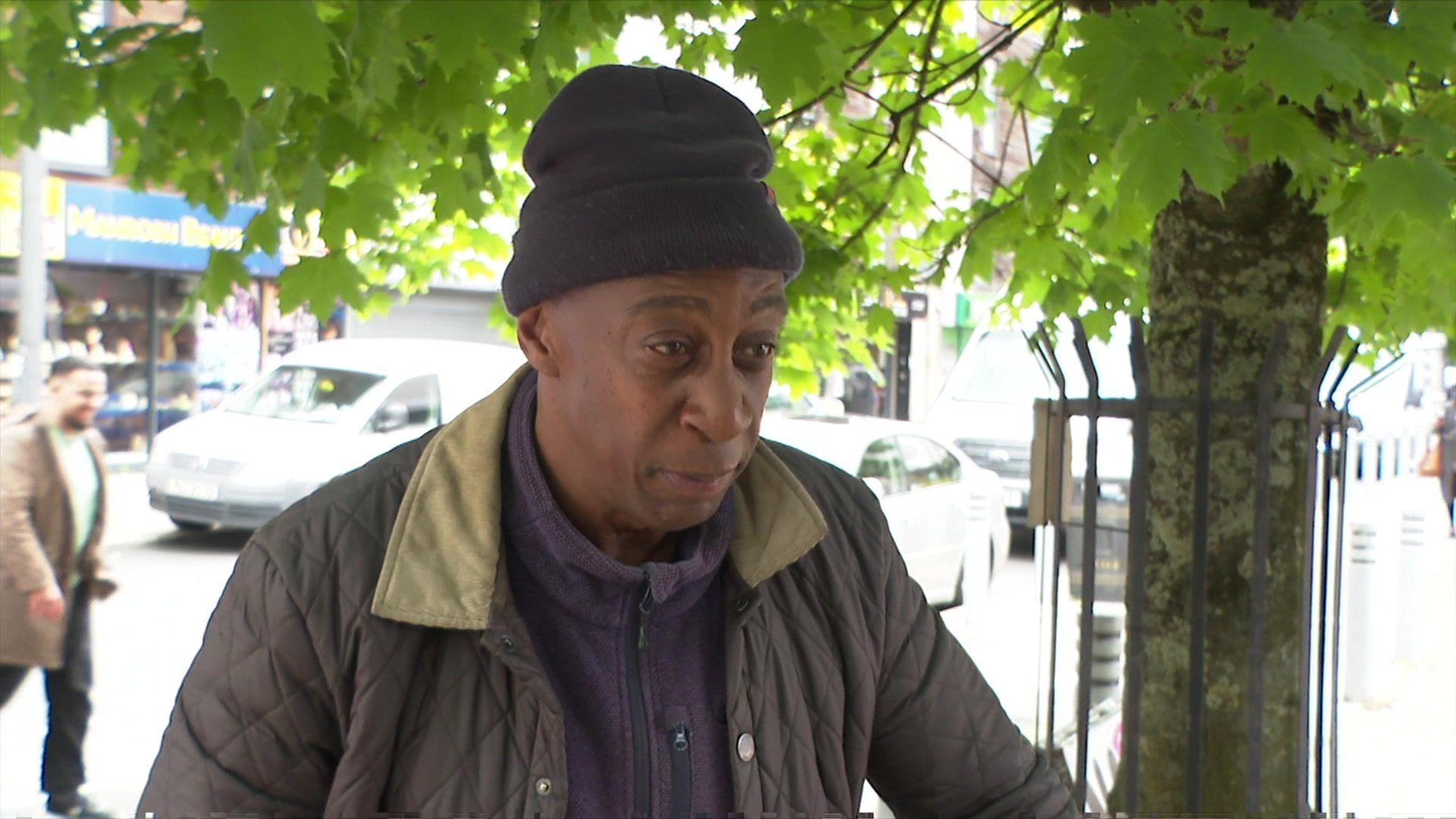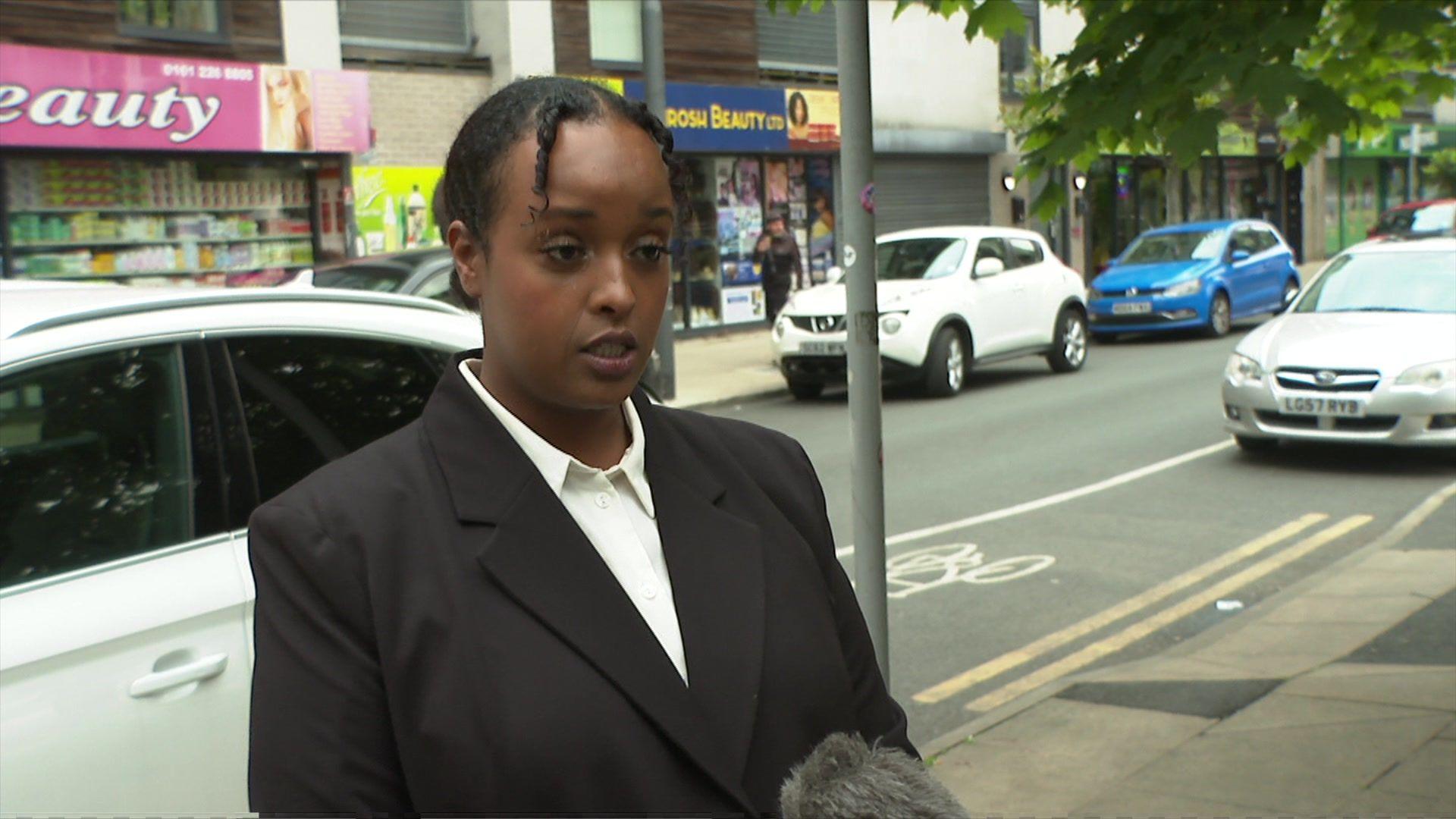Force's stop-and-search up 25 times national average

Greater Manchester Police stopped and searched more than 100 people a day in 2023
- Published
The use of stop-and-search powers by police in Greater Manchester has increased by 25 times the national average.
More than 100 people in the region were stopped and searched by police every day last year, new figures show.
The powers were used to stop more than 42,000 people in 2023, up from just over 9,000 in 2021 – about 25 times the national average increase between those years.
Greater Manchester Police (GMP) said stop-and-search was "police work" that "contributes to a drop in crime" and was "never used lightly".

One man said he had been stopped and searched and knew other men in the Hulme area who had the same experience
In England and Wales, stop-and-search powers, external, let police search an individual or vehicle if they have "reasonable grounds" to suspect the person is carrying:
illegal drugs
a weapon
stolen property
something that could be used to commit a crime
GMP's figures show that black people are still more likely to be stopped in the region than any other group.
Liberty, the human rights organisation, previously said stop-and-search was "one of the most controversial and most criticised police powers".
But GMP said the decision to deploy the powers was "targeted and intelligence-led and practised on people who are suspected of being involved in crime".
Some people in the Hulme area of Manchester said they were concerned by the figures, with some questioning the need for the use of stop-and-search to such a degree.
One man told BBC North West Tonight: "They’ve been stopping black people more than other people.
"I’ve experienced it and a lot of men in this area share my view."

One woman said it made her "angry" to think that black people were more likely to be stopped and searched
In Greater Manchester, black people are 2.4 times more likely to be stopped and searched than any other group.
Nationally, black people are 4.1 times more likely to be stopped and searched than other groups - down from 4.8 times last year, government figures show.
One woman said she was angered that one ethnic group appeared to be disproportionately targeted.
She said: "It makes me feel angry and targeted, to be honest.
"If I had a son who was going to be getting targeted I don’t think I would want that."
GMP said stop-and-search powers were "never used lightly", and that "police officers will only exercise their legal right to stop members of the public and search them when they genuinely suspect that doing so will further their investigations into criminal activity.
"Whether that means looking for weapons, drugs or stolen property."
Listen to the best of BBC Radio Manchester on Sounds and follow BBC Manchester on Facebook, external, X, external, and Instagram, external. You can also send story ideas to northwest.newsonline@bbc.co.uk, external